Click here for session description.
advertisement
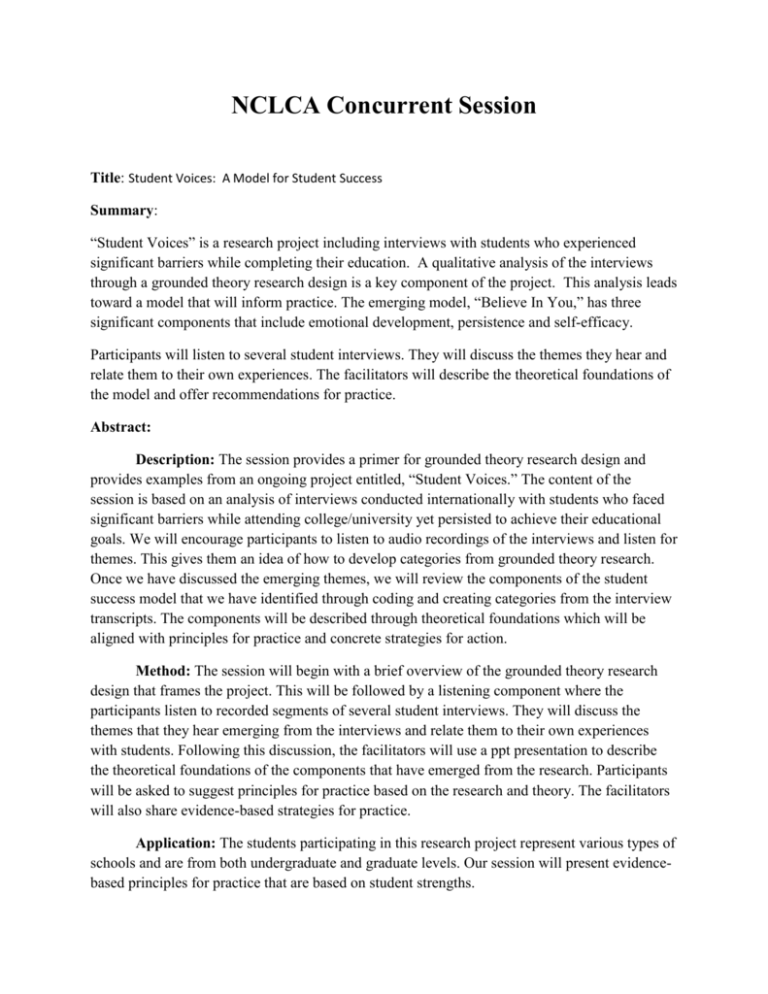
NCLCA Concurrent Session Title: Student Voices: A Model for Student Success Summary: “Student Voices” is a research project including interviews with students who experienced significant barriers while completing their education. A qualitative analysis of the interviews through a grounded theory research design is a key component of the project. This analysis leads toward a model that will inform practice. The emerging model, “Believe In You,” has three significant components that include emotional development, persistence and self-efficacy. Participants will listen to several student interviews. They will discuss the themes they hear and relate them to their own experiences. The facilitators will describe the theoretical foundations of the model and offer recommendations for practice. Abstract: Description: The session provides a primer for grounded theory research design and provides examples from an ongoing project entitled, “Student Voices.” The content of the session is based on an analysis of interviews conducted internationally with students who faced significant barriers while attending college/university yet persisted to achieve their educational goals. We will encourage participants to listen to audio recordings of the interviews and listen for themes. This gives them an idea of how to develop categories from grounded theory research. Once we have discussed the emerging themes, we will review the components of the student success model that we have identified through coding and creating categories from the interview transcripts. The components will be described through theoretical foundations which will be aligned with principles for practice and concrete strategies for action. Method: The session will begin with a brief overview of the grounded theory research design that frames the project. This will be followed by a listening component where the participants listen to recorded segments of several student interviews. They will discuss the themes that they hear emerging from the interviews and relate them to their own experiences with students. Following this discussion, the facilitators will use a ppt presentation to describe the theoretical foundations of the components that have emerged from the research. Participants will be asked to suggest principles for practice based on the research and theory. The facilitators will also share evidence-based strategies for practice. Application: The students participating in this research project represent various types of schools and are from both undergraduate and graduate levels. Our session will present evidencebased principles for practice that are based on student strengths. Analysis: Often we design interventions based on a deficit model. We consider at-risk students and build programs to address the factors that we believe contribute to their anticipated failure. We wanted to look at students who succeed despite multiple obstacles and create a model based on the strengths that distinguish them. Listening to them tell their stories gave us the opportunity to hear directly from them what they believe contributed to their success. It was also important to us that our population be international. We increasingly work with international students, and it is significant that the themes that emerged were universal. Synthesis: This project can be replicated in any higher education environment. The elements that are required include technology to conduct interviews through skype or a tape recorder that can stream the interview to a computer. Permission must be granted by the Institutional Research Review Board and students must sign a release to allow the interviews to be shared. There is software that can be used to analyze the transcripts, but we recommend coding and categorizing individually. Conference theme: This proposal fits well with the conference theme (Soaring Into the Future) as it emphasizes the changing nature of students in higher education and how we must discover approaches to best meet their needs. Too often we assume we know what students need without actually listening to them. In this session, students speak directly to us and tell us what we need to do to help them succeed.
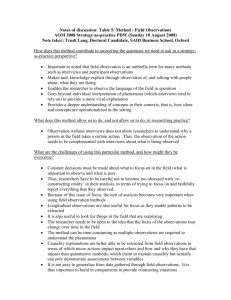

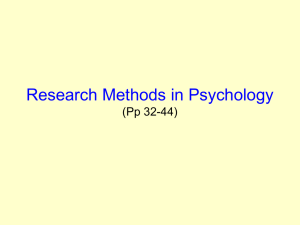
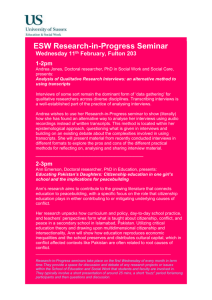

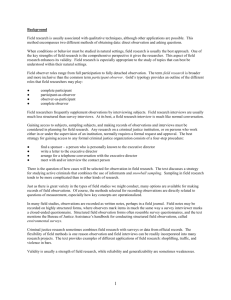
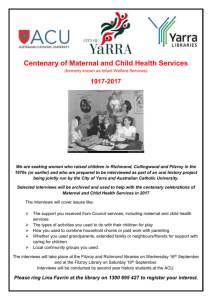

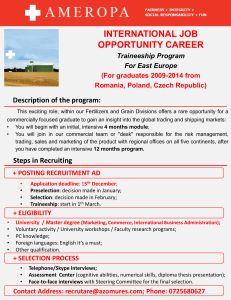
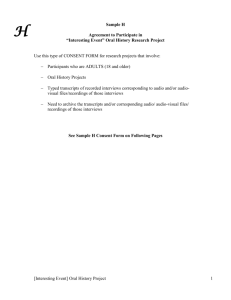
![[I have a transcript of mine] The Ronald Fraser Interviews: 1968 – A](http://s3.studylib.net/store/data/007215238_1-93f492c7e4fe644d371361ab0bbe4b37-300x300.png)
